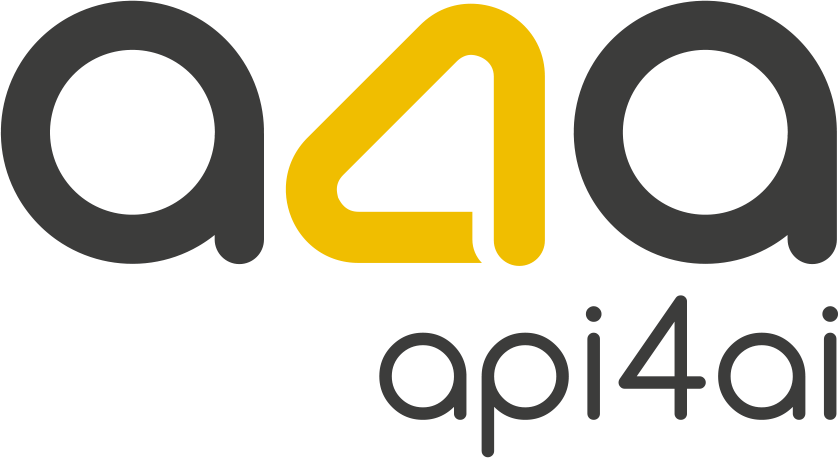
Beat Tech Debt Early Using CRken AI Reviews
Micro-debt is the silent killer of software velocity. A leftover TODO here, a complexity spike there — each one seems harmless until your team is buried in rework. This blog post explores how AI-powered code reviewers like CRken help you catch early signs of tech debt right in the merge request, before they snowball into costly refactor sprints. Learn how shifting review left with LLMs can streamline development, improve team focus and turn clean commits into long-term business wins.
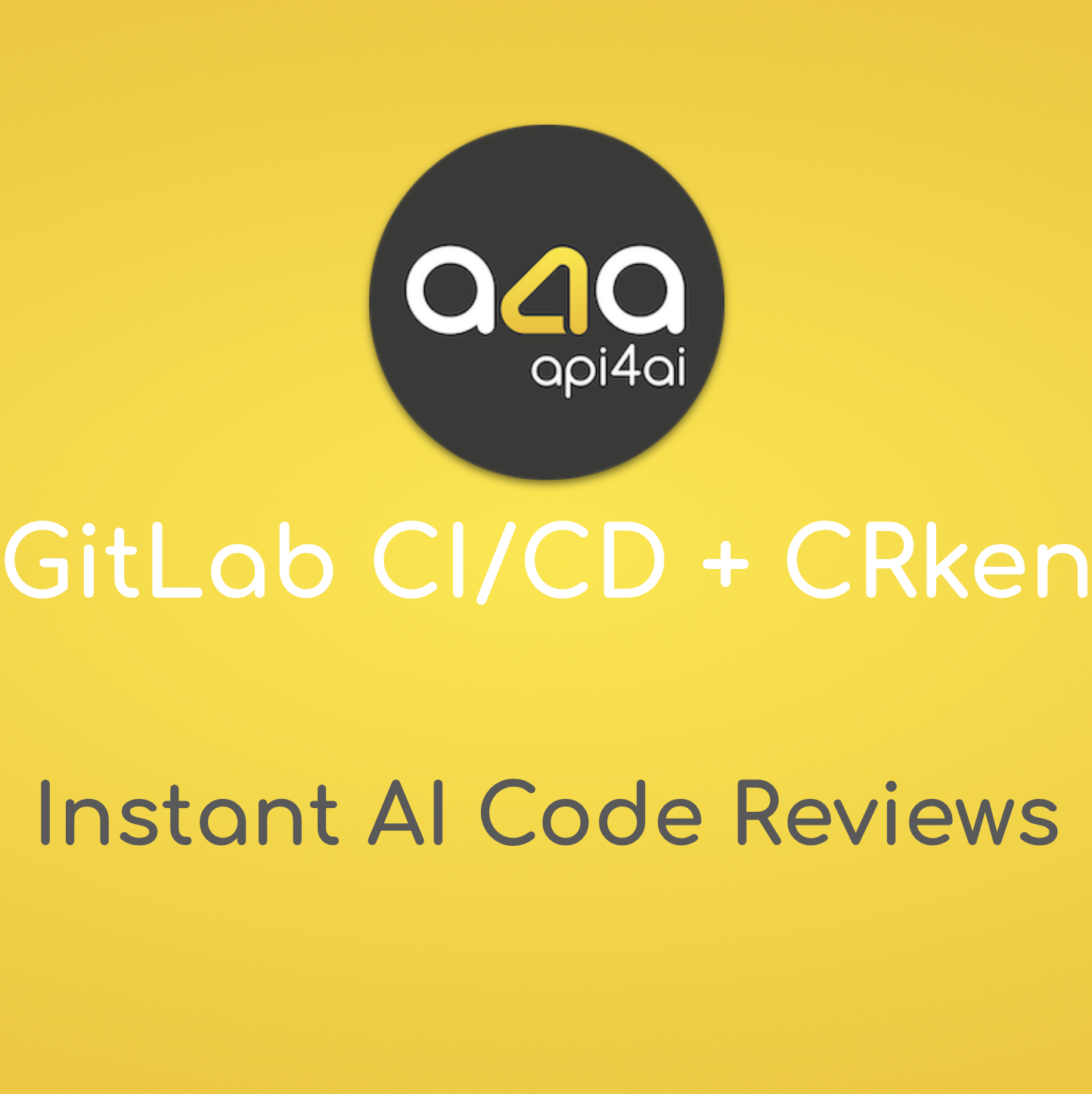
GitLab CI/CD + CRken: Instant AI Code Reviews
Merge request backlogs are the silent productivity killer in modern DevOps. While CI/CD pipelines move fast, human code reviews often lag behind — delaying features and draining focus. This blog explores how integrating AI-powered reviewers, like CRken, into GitLab pipelines can transform the process. By delivering instant, actionable feedback, LLM-based tools reduce review times, improve code quality and let developers focus on what really matters: architecture, not formatting.

Impact of Manual Code Reviews on Software Development
Developer participation in code reviews is a cornerstone of software quality and team collaboration. According to industry surveys, around 76.4% of developers regularly engage in code reviews, with 68.8% valuing the process for its quality checks and knowledge sharing. However, nearly one-quarter still bypass this crucial step, potentially leaving vulnerabilities and code issues unchecked. In highly regulated sectors like finance and healthcare, participation nears 100%, driven by strict compliance and security demands. This post explores the state of code review practices across industries, the gaps in adoption and strategies to enhance developer involvement.
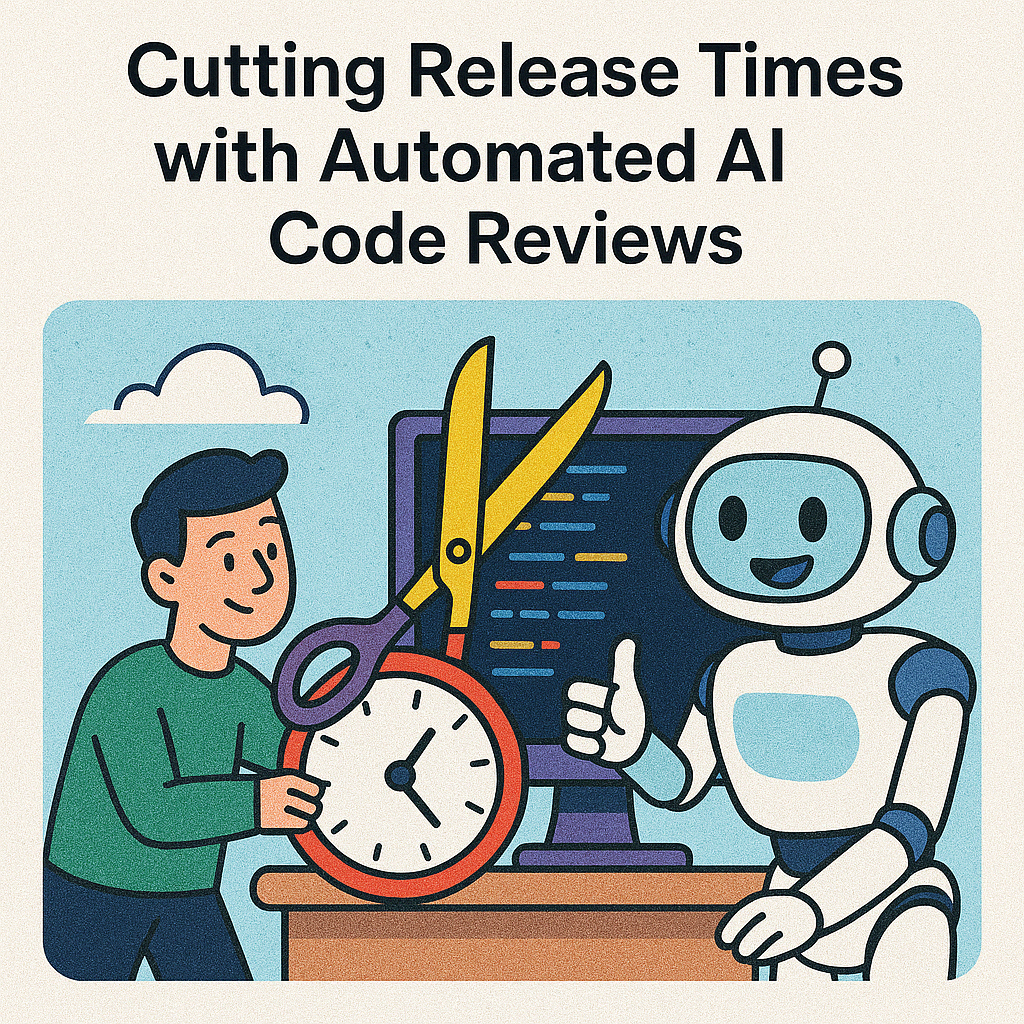
Cutting Release Times with Automated AI Code Reviews
Manual code reviews, while essential for maintaining code quality, often become a bottleneck — causing delays, introducing inconsistencies and increasing developer fatigue. As teams scale and projects become more complex, relying solely on human reviewers slows down release cycles and affects overall productivity. In this blog post, we dive into how automated AI code review APIs are reshaping the software development process. Powered by large language models (LLMs), these tools provide instant, intelligent feedback directly within GitLab and GitHub workflows. We’ll explore how AI reviews enable up to 30% faster release times, reduce context switching, support multiple languages and promote cleaner, more consistent code. From seamless CI/CD integration to the future of auto-suggested fixes, this post covers the key reasons why now is the time to adopt AI-powered reviews and future-proof your development pipeline.
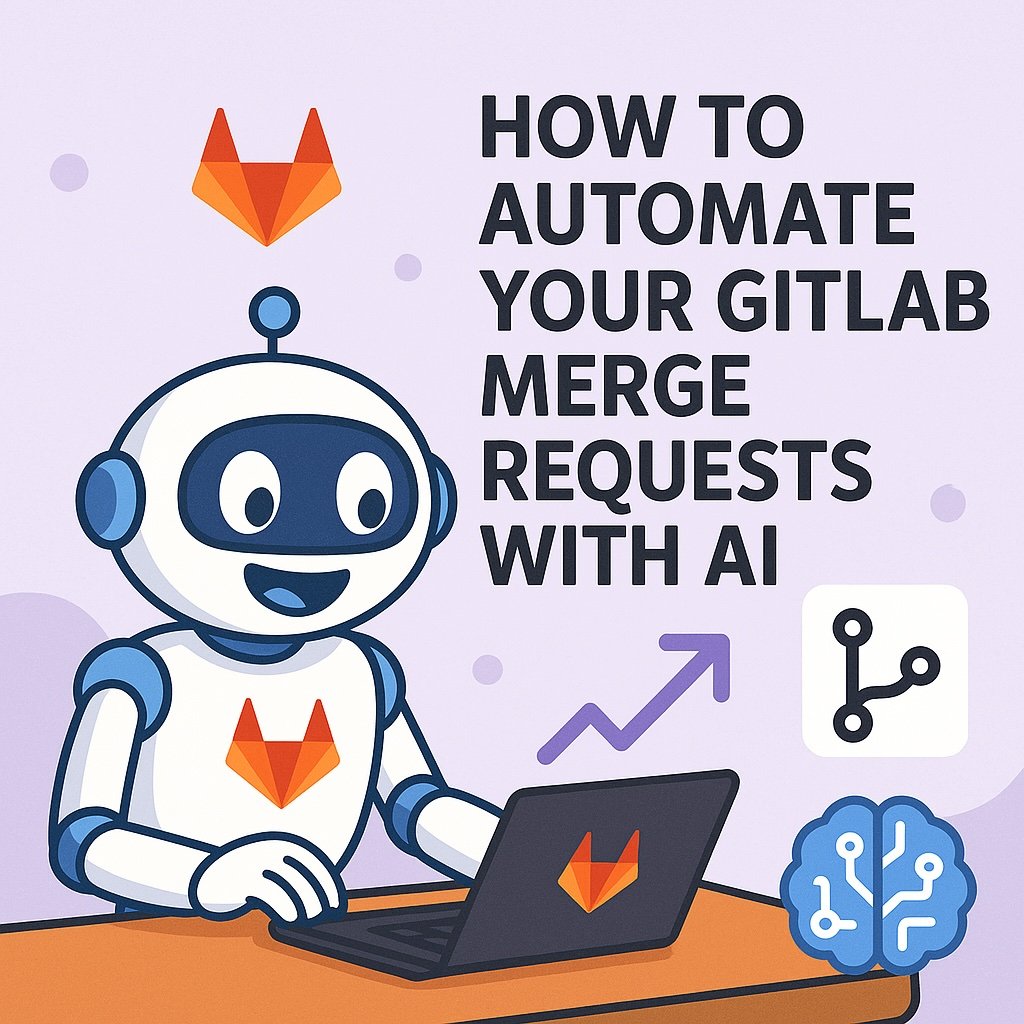
How to Automate Your GitLab Merge Requests with AI
As development teams face increasing pressure to deliver high-quality software at speed, traditional code review processes are becoming a major bottleneck. This blog post explores how integrating AI into GitLab Merge Requests can dramatically improve the way teams review and merge code. From reducing wait times and providing consistent, real-time feedback to supporting multiple programming languages and easing the workload on developers, AI-powered tools are changing the game. We’ll walk through how automated reviews work, highlight best practices for implementation, and showcase CRken — a cloud-based API built on advanced language models — as a real-world example of intelligent automation in action. Whether you're part of a fast-growing startup or a large-scale engineering team, this guide will help you future-proof your workflow and accelerate development without sacrificing quality.

The Future of Software Developer Careers: Should Programmers Fear AI?
AI is transforming software development, but rather than replacing programmers, it is enhancing their capabilities. From AI-powered code assistants to low-code platforms, automation is streamlining workflows and freeing developers to focus on problem-solving, architecture and innovation. While some tasks are being automated, the demand for skilled engineers remains high, especially in areas like AI integration, cloud computing and cybersecurity.
The key to staying relevant is adaptability. Developers who embrace AI tools, learn new technologies and refine their strategic thinking will continue to thrive. Instead of fearing AI, the future belongs to those who leverage its potential to build smarter, more efficient and more scalable software solutions.
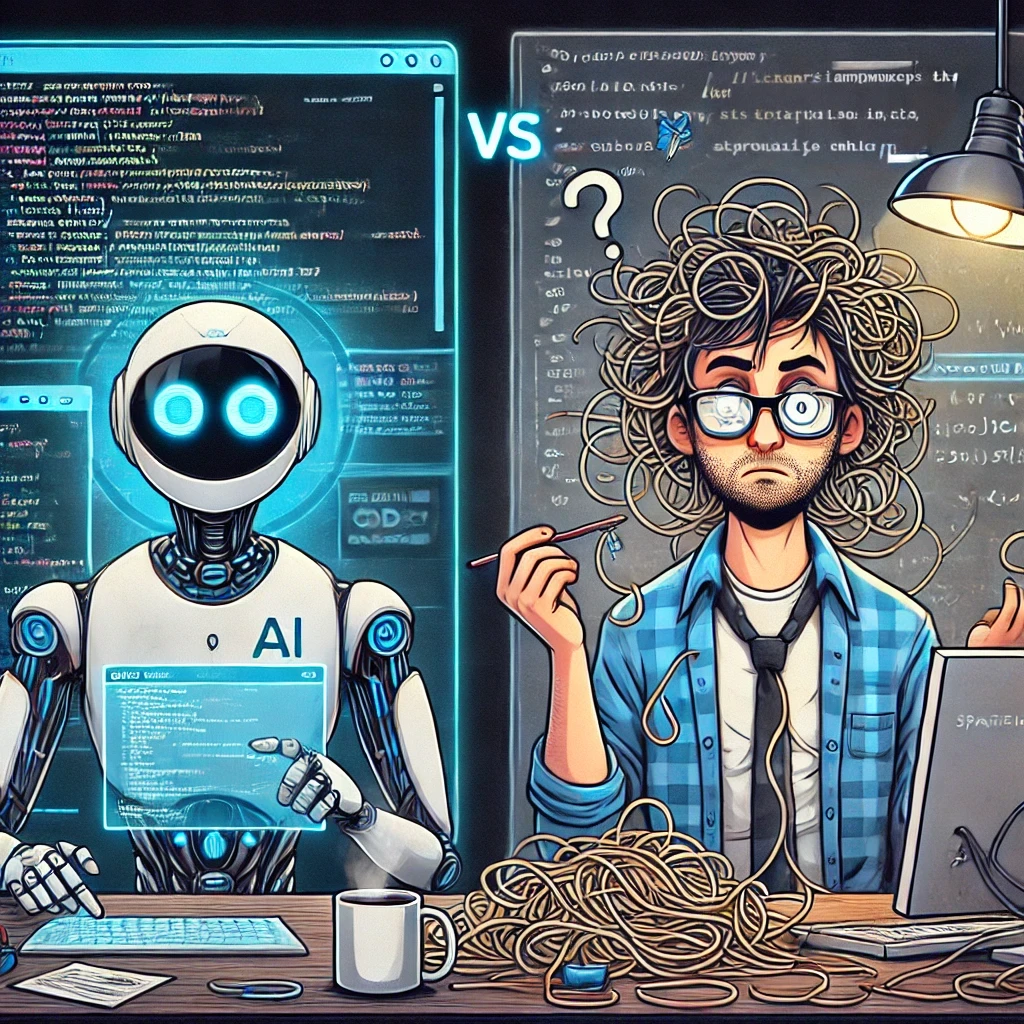
AI vs Human Code Review: Pros and Cons Compared
Code review is a critical step in software development, ensuring code quality, security and maintainability. Traditionally, human reviewers have handled this process, offering valuable insights and contextual understanding. However, AI-powered code review is revolutionizing the way teams approach development by providing instant feedback, consistency and scalability.
In this article, we compare the strengths and weaknesses of manual vs. AI-driven code reviews, examining factors like efficiency, accuracy and scalability. While AI tools excel in speed and identifying repetitive issues, human reviewers bring essential domain expertise and critical thinking that AI still lacks.
We also explore CRken, an AI-powered code review solution that integrates with GitLab, automating code analysis to streamline development workflows. As AI technology evolves, the best approach may not be AI versus human reviewers, but rather a hybrid model that leverages the strengths of both.
Read on to discover how AI and human collaboration can create a faster, smarter and more efficient development process.

LLM-Powered Code Review: Top Benefits & Key Advantages
Traditional code reviews can be slow, inconsistent, and prone to human error, but LLM-powered code review is changing the game. By automating the review process, AI-driven tools provide faster feedback, improved code quality, and seamless collaboration, allowing developers to focus on high-value tasks.
As AI continues to evolve, the future of code review will include advanced context understanding, personalized developer feedback, and predictive code analysis, making software development more efficient than ever. Teams that integrate AI-powered reviews into their CI/CD pipelines will gain a competitive edge, reducing technical debt and accelerating release cycles. Now is the time to explore how AI-driven automation can transform your development workflow.
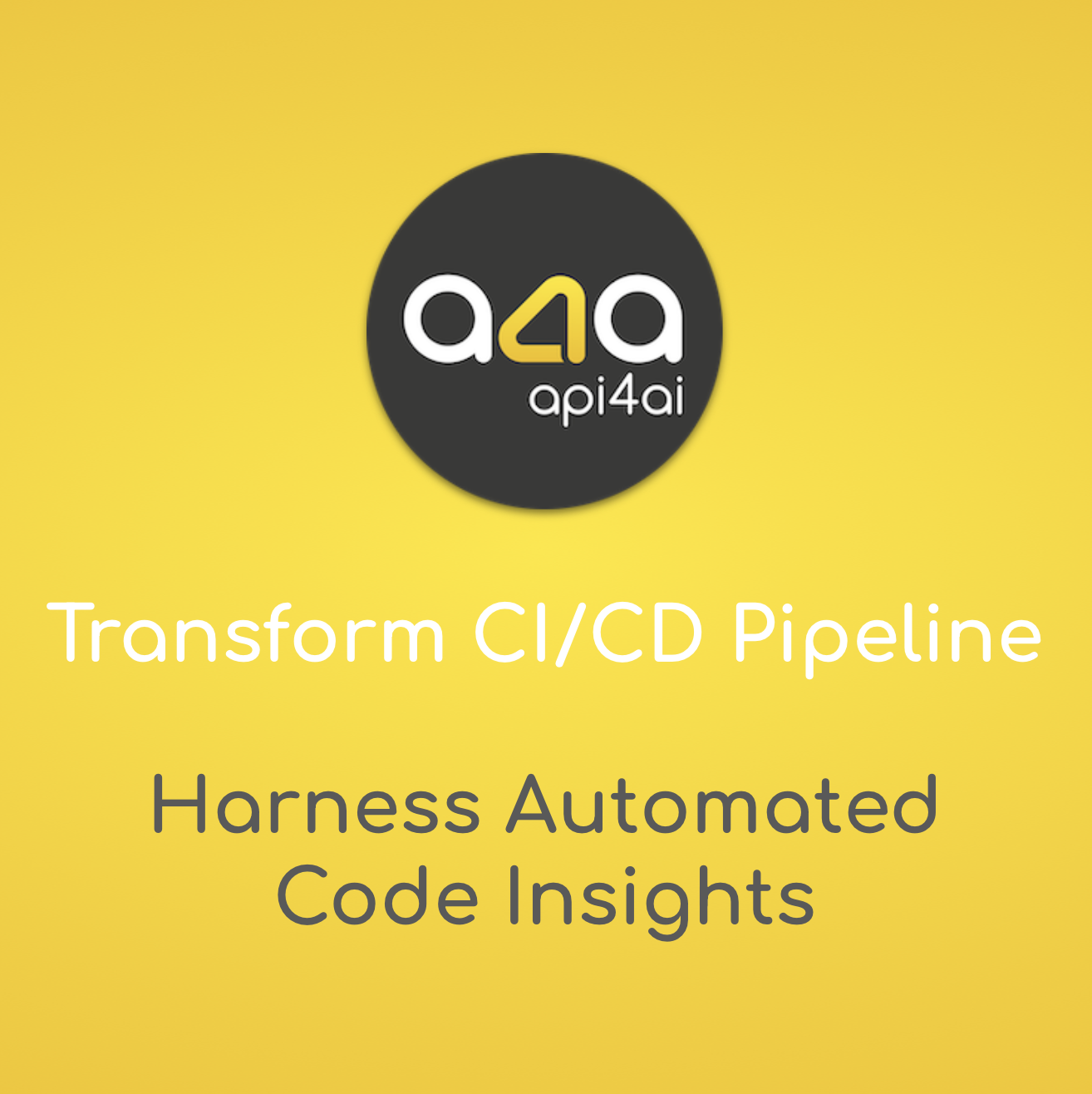
Transform CI/CD Pipeline: Harness Automated Code Insights
As software development accelerates, manual code reviews can become bottlenecks, slowing down releases and increasing the risk of errors. Integrating AI-powered automated code insights into CI/CD pipelines is transforming how teams ensure code quality, streamline collaboration, and accelerate deployments.
Large language models (LLMs) bring a new level of intelligence to code reviews, offering context-aware analysis, best practice recommendations, and security insights across multiple programming languages. By embedding AI-driven feedback directly into GitLab workflows, teams can reduce review time, improve consistency, and focus on innovation rather than repetitive checks.
This article explores how AI is reshaping CI/CD pipelines, from automating code reviews with tools like CRken to best practices for seamless adoption. Whether you’re looking to reduce technical debt, optimize team efficiency, or enhance security, AI-driven automation is the next evolution in modern software development.

CRken & GitLab: Perfect Pair for AI Code Maintenance
AI-powered code review is transforming software development, making code maintenance faster, more efficient, and more reliable. Traditional manual reviews, while essential, often slow down development and introduce inconsistencies. CRken, an AI-driven code review tool, seamlessly integrates with GitLab to automate repetitive tasks, enforce best practices, and provide real-time feedback. By leveraging large language models (LLMs), CRken enhances code quality, reduces technical debt, and ensures smooth collaboration across teams.
This article explores how CRken and GitLab work together to streamline code maintenance, improve review cycles, and support scalable development workflows. We’ll discuss the benefits of AI-assisted reviews, best practices for integrating AI into your development process, and why AI-powered tools are the future of software engineering. Whether you’re looking to accelerate feature releases or maintain high-quality standards, AI-driven code review is the key to staying ahead in modern development.

Why AI-Powered Code Reviews Are Essential for Modern Dev Teams
As software development accelerates, traditional code reviews often become bottlenecks, slowing down releases and increasing the risk of undetected issues. AI-powered code review tools offer a smarter approach by automating repetitive tasks, ensuring consistency and providing instant, data-driven feedback.
With advancements in Large Language Models (LLMs), AI can now analyze code beyond simple syntax checks, understanding context, enforcing best practices and reducing manual effort. These tools streamline collaboration, eliminate review delays and improve code quality — all while helping developers focus on innovation rather than tedious corrections.
By integrating AI-driven reviews into their workflow, teams can shorten development cycles, reduce post-deployment errors and gain a competitive edge in an industry that demands both speed and reliability. The future of software development is AI-assisted and early adopters will be best positioned to lead the way.

CRken: Automated Code Analysis for GitLab Merge Requests
Code reviews are essential for maintaining software quality, but traditional manual reviews can slow down development and introduce inconsistencies. CRken is an AI-powered code analysis tool designed to automate and enhance code reviews in GitLab Merge Requests. Built on large language models (LLMs), CRken provides intelligent, real-time feedback, helping teams accelerate development cycles while ensuring high code quality.
In this article, we explore how CRken works, its key benefits and real-world use cases — from large enterprises managing complex codebases to agile startups looking for faster feedback loops. We also discuss the challenges of AI-powered code review, including security considerations and the importance of human oversight, as well as future trends like AI-driven security scanning and full DevOps integration.
Whether you're aiming to reduce manual review overhead, speed up feature releases or maintain consistency across large teams, CRken offers a scalable, AI-powered solution to streamline your development workflow.
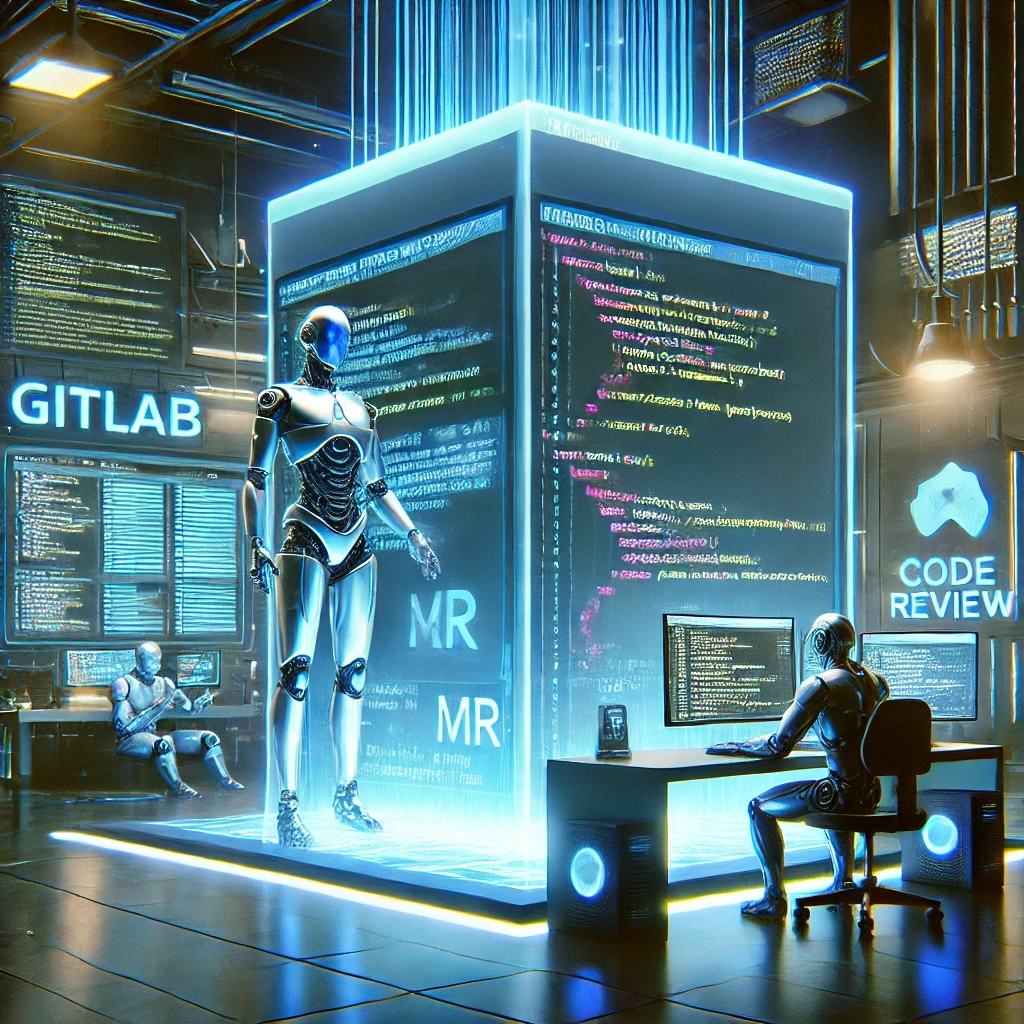
GitLab AI Code Review: LLM-Powered Solutions for MRs
As software development accelerates, AI-powered code review is transforming how teams manage Merge Requests (MRs) in GitLab. By leveraging Large Language Models (LLMs), AI-driven review tools provide real-time feedback, detect potential issues and ensure coding standards are consistently applied — all while reducing manual workload.
This shift from traditional manual reviews to AI-assisted analysis brings faster development cycles, improved code quality and better collaboration between developers and automated tools. While AI doesn’t replace human reviewers, it acts as an intelligent assistant, streamlining repetitive checks and allowing teams to focus on high-impact tasks.
Looking ahead, AI’s role in software development will only expand. From automated refactoring suggestions to deeper static analysis and DevOps integration, AI is set to revolutionize code quality management. By embracing AI-powered review solutions, teams can enhance efficiency, improve security and future-proof their development workflows — without compromising human expertise.

AI-Powered Code Reviews 2025: Key LLM Trends Shaping Software Development
AI-powered code reviews are revolutionizing the software development landscape, making workflows smarter, faster and more collaborative. Built on advanced large language models (LLMs), these tools provide precise, context-aware feedback, automate tedious tasks and accelerate development cycles. As we look to 2025 and beyond, AI-driven solutions like CRken are not just enhancing code quality — they're transforming how teams build, test, and deliver software. By embracing these innovations, developers can focus on creativity and innovation, paving the way for the future of technology.
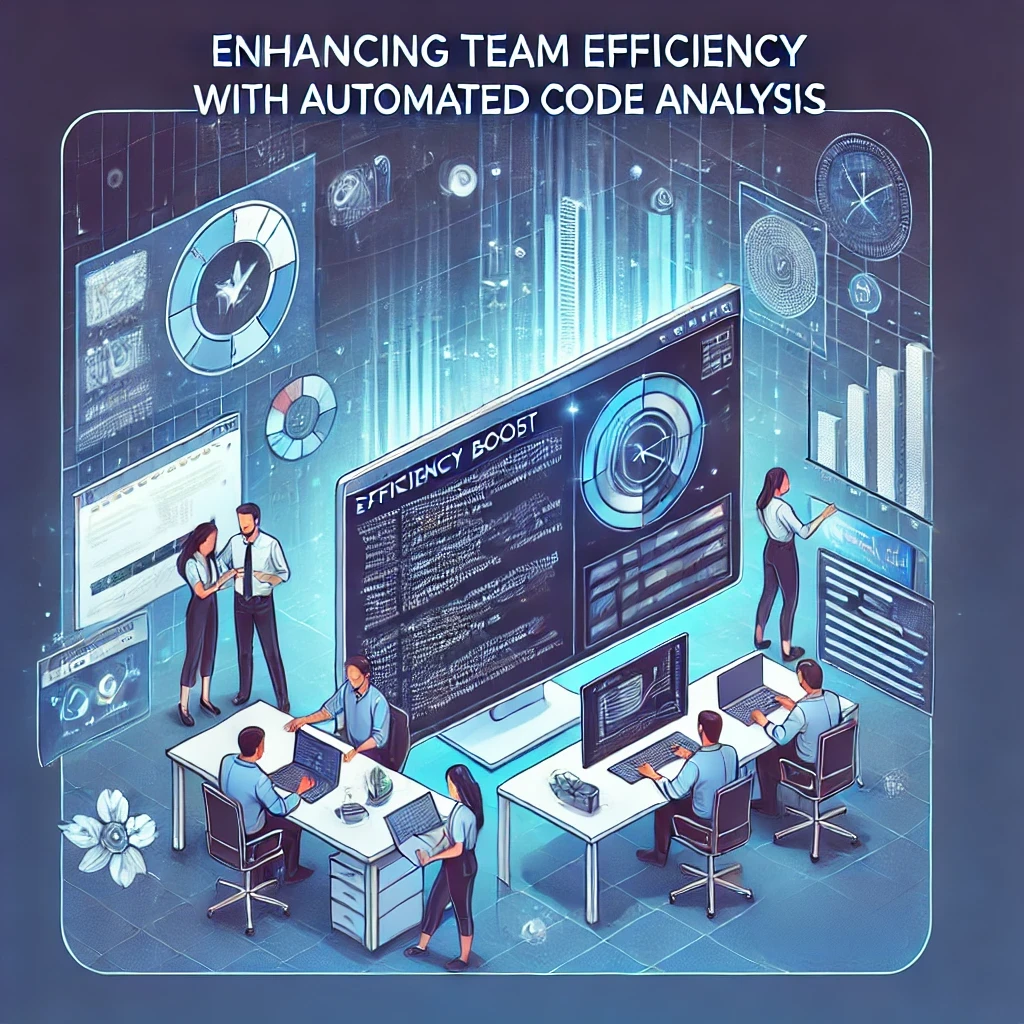
Enhancing Team Efficiency with Automated Code Analysis
Automated code analysis is revolutionizing software development by enhancing team efficiency and code quality. This blog post explores how AI-driven tools streamline workflows, accelerate feedback loops and enforce consistent standards while freeing developers to focus on high-value tasks. Discover the key features of modern solutions, like advanced language models and seamless CI/CD integration and learn how gradual adoption strategies can maximize ROI. Dive into the future of automated code analysis with insights on evolving technology, deeper toolchain integration and custom AI solutions tailored to unique needs. The era of smarter, faster development starts here.
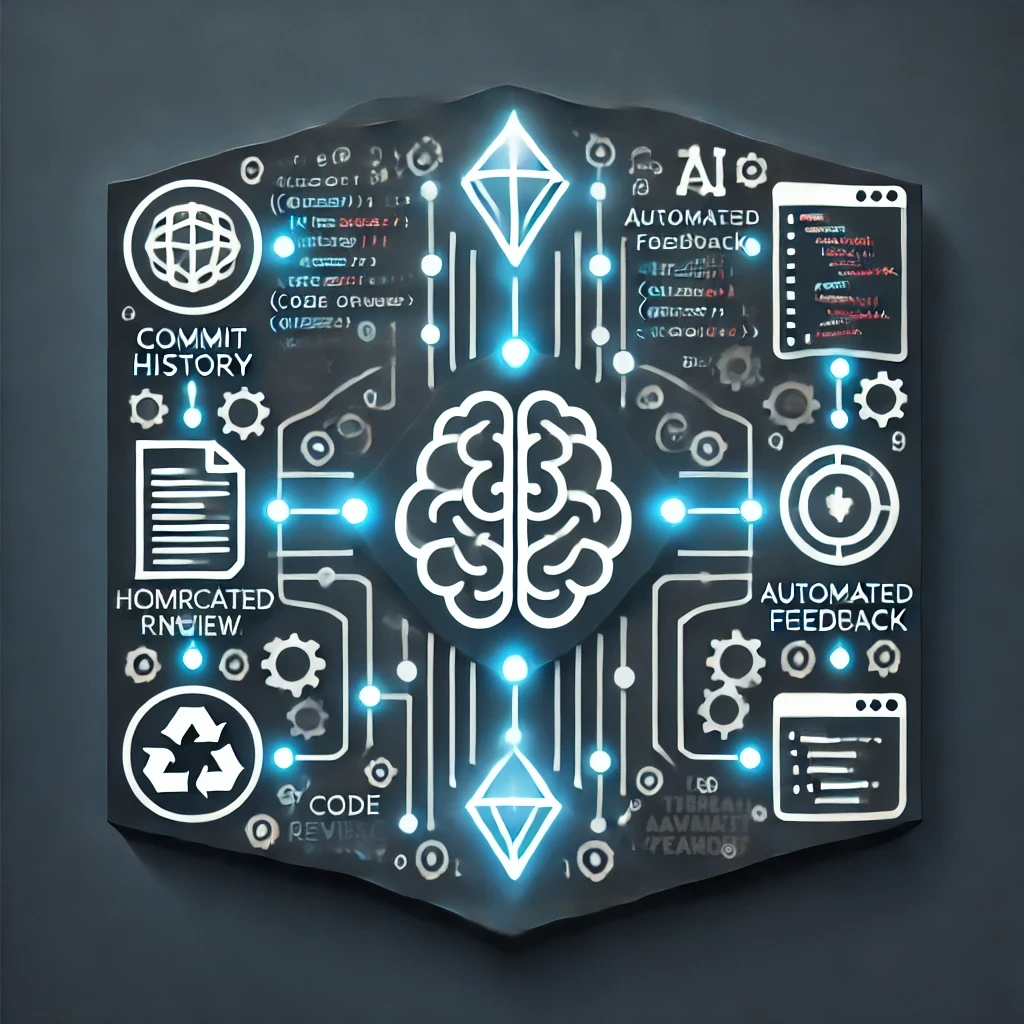
Integrating AI into Version Control Systems: Enhancing Code Review
Maintaining code quality while meeting tight deadlines is a constant challenge. Traditional code reviews, though essential, can be time-consuming, prone to human error and difficult to scale. Enter Artificial Intelligence (AI), a game-changer in automating and enhancing code review processes. By integrating AI into Version Control Systems (VCS) like GitLab, teams can streamline their workflows, achieve consistent feedback and boost productivity.
This blog explores the transformative impact of AI-powered code review tools, detailing how technologies like Large Language Models (LLMs) automate routine checks, reduce review times and foster deeper collaboration. Discover how AI is reshaping software development, offering developers more time to focus on innovation and complex problem-solving while ensuring top-tier code quality. Embrace the future of coding with AI-enhanced VCS workflows.
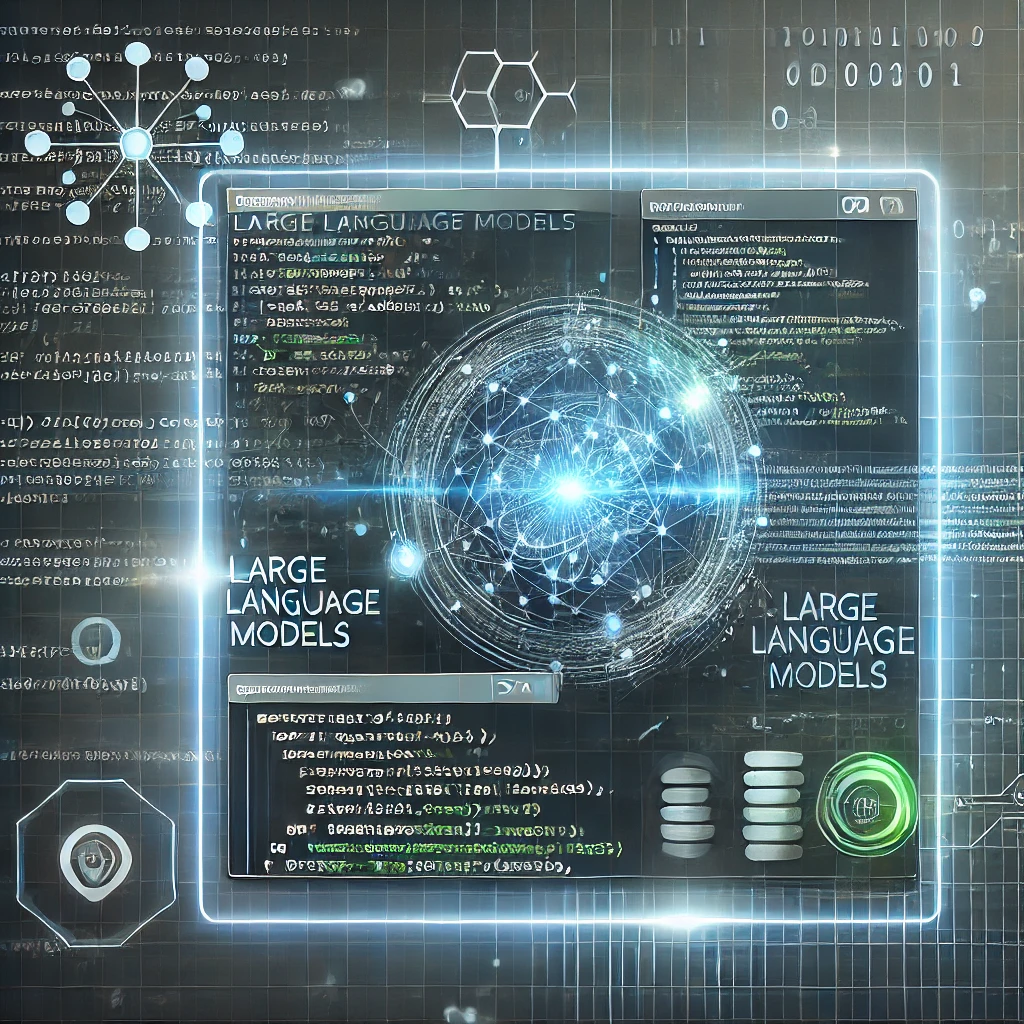
Large Language Models in Code Review Automation
Large Language Models (LLMs) are transforming code review automation, offering unprecedented precision, efficiency and adaptability. By integrating seamlessly into development workflows, LLMs analyze code, provide actionable feedback and support multiple programming languages, addressing the challenges of traditional code reviews. This blog explores how LLMs enhance software development, improve team collaboration, and accelerate feature releases, while also examining their potential to shape the future of AI-driven coding practices. Discover why LLM-powered code review tools are becoming essential for modern development teams.

Streamlining Development with AI Code Review
As software development grows more complex, traditional code review processes often struggle to keep up, leading to bottlenecks, inconsistencies and delays. AI-powered code review is revolutionizing the way developers maintain code quality by automating repetitive tasks, providing instant and precise feedback and enabling seamless collaboration. With tools like CRken, powered by advanced large language models (LLMs), teams can accelerate their workflows, reduce errors and focus on innovation. Discover how AI is transforming code review into a faster, smarter and more reliable process that meets the demands of modern development.
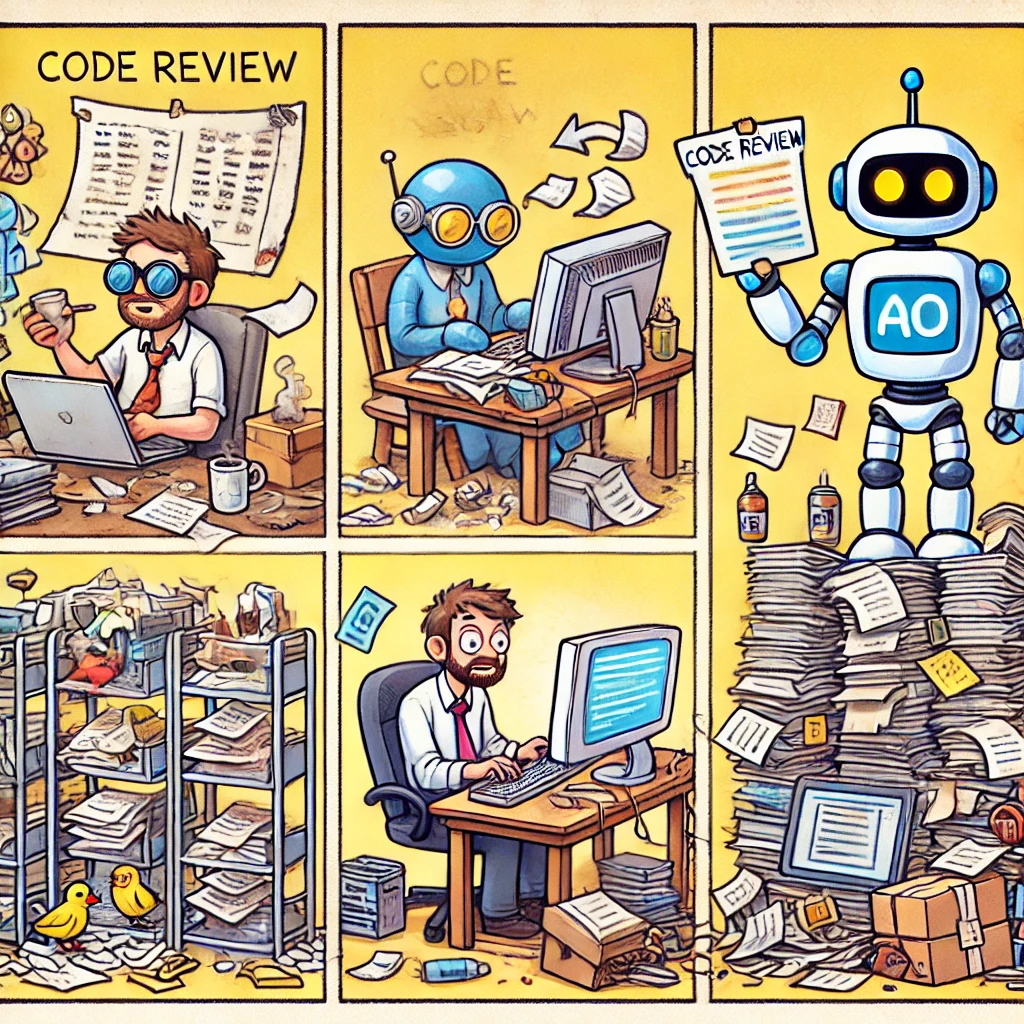
The Evolution of Code Review: AI’s Impact on Development
AI-powered code review is revolutionizing software development, bringing efficiency, precision and scalability to a traditionally manual process. By leveraging advanced large language models (LLMs), tools like CRken deliver intelligent, context-aware insights directly within development environments, transforming code review into a faster, smarter and more collaborative practice. As development demands grow, AI-driven code review enables teams to maintain high-quality standards, reduce technical debt and accelerate release cycles — all while empowering developers to focus on innovation. Embracing AI in code review is more than an upgrade, it's a strategic step toward a more agile, effective and future-ready development process.
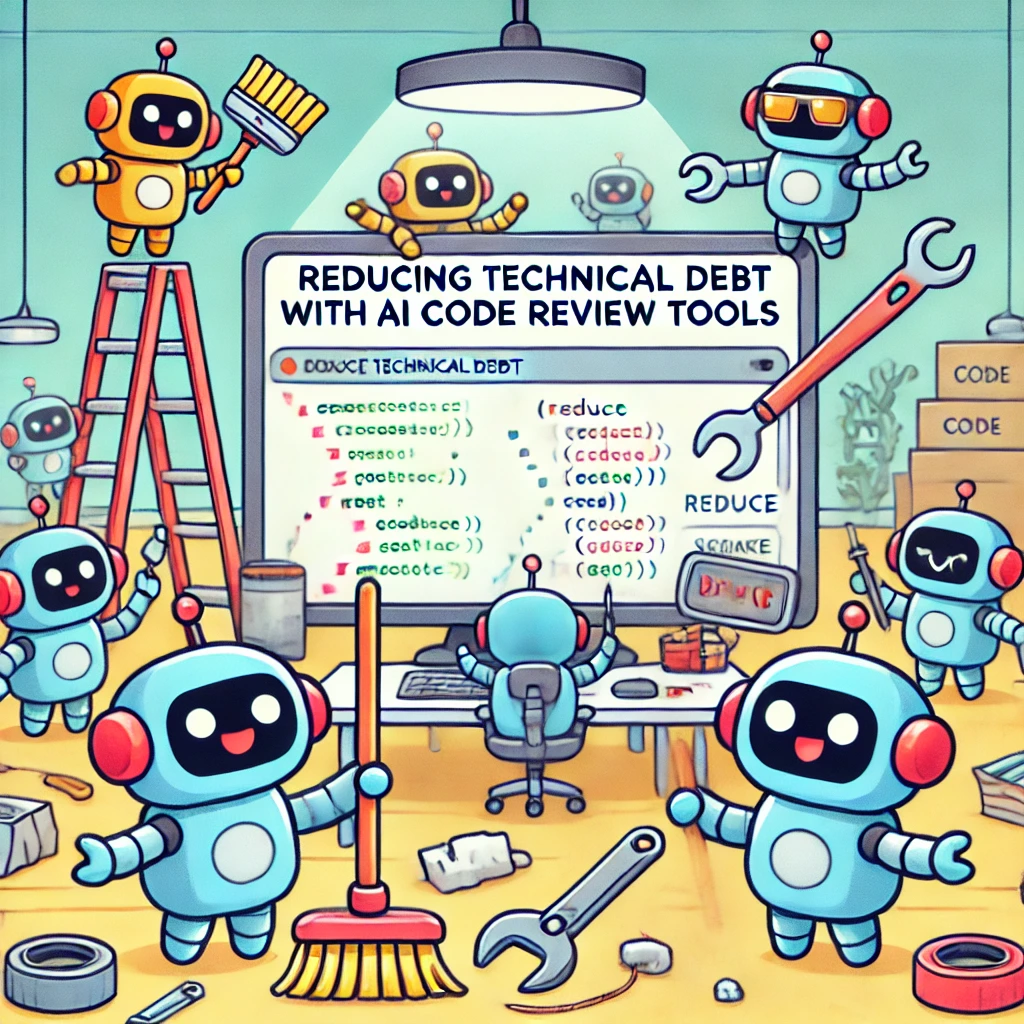
Reducing Technical Debt with AI Code Review Tools
Technical debt can weigh down even the most agile development teams, leading to costly rework and slower project timelines. AI-powered code review tools like CRken offer a proactive solution, automating the detection of potential issues and enforcing best practices to keep code quality high from the start. Built with advanced large language models (LLMs), CRken integrates directly with GitLab, providing real-time feedback that helps developers reduce technical debt and boost productivity. In this post, we explore how CRken and similar AI tools can transform code review, supporting sustainable development and enabling faster, more reliable releases.
